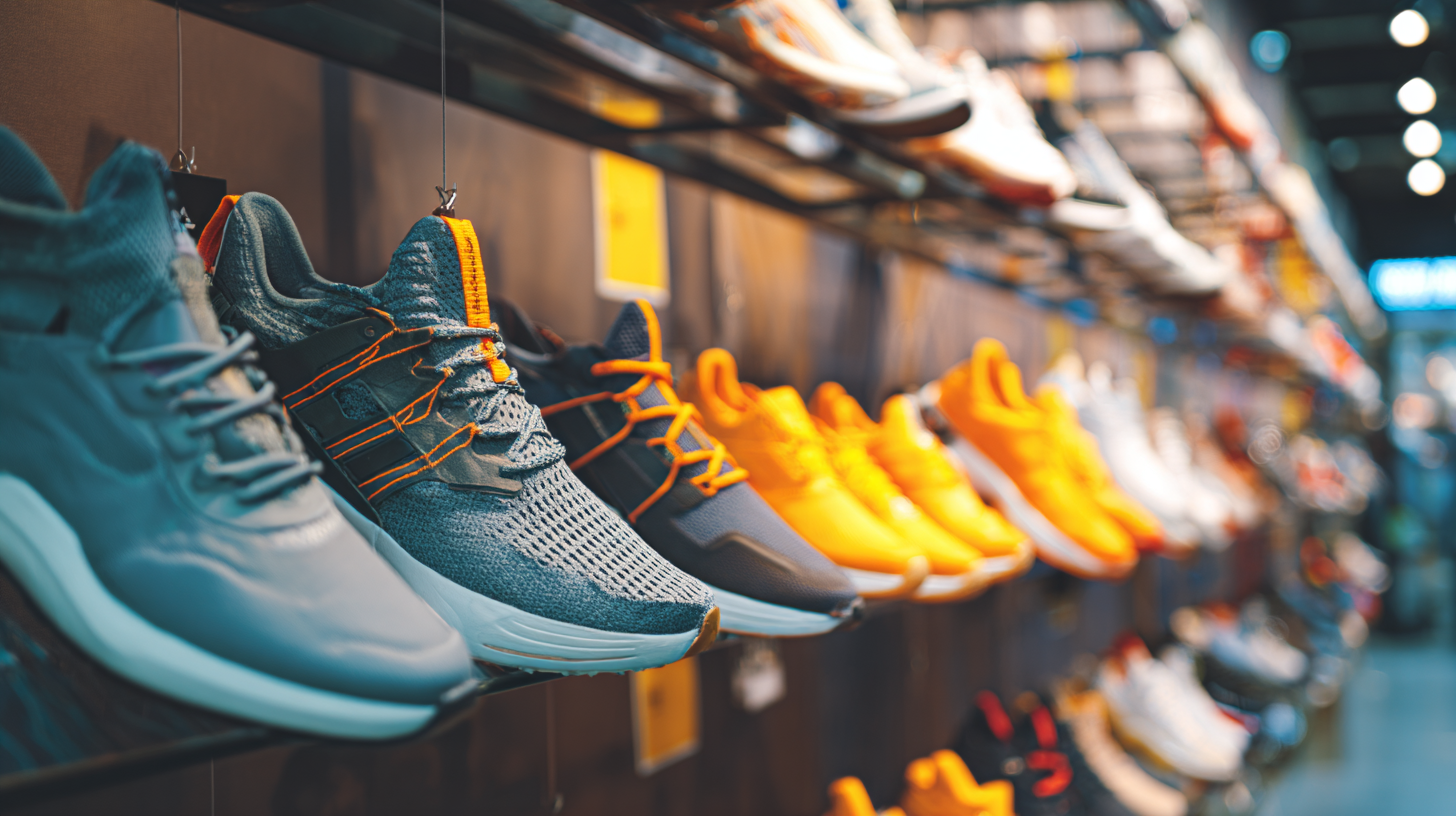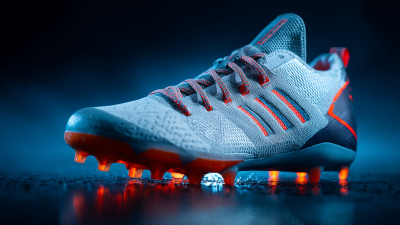
In the highly competitive athletic footwear market, choosing the right Sports Shoes Supplier is crucial for businesses aiming to meet the evolving demands of consumers. According to a 2022 report by Grand View Research, the global sports footwear market is projected to reach $150 billion by 2028, driven by increasing health consciousness and an active lifestyle among consumers. Furthermore, a study by IBISWorld reveals that the sports shoe industry's growth rate is expected to surpass 3% annually over the next five years. With such significant market potential, selecting a reliable and quality-focused supplier can directly impact a brand's reputation and profitability. Therefore, understanding the criteria for evaluating suppliers based on industry standards and consumer preferences is essential for any business looking to thrive in this dynamic sector.

When selecting a sports shoes supplier for your business, the first step is to accurately identify your specific requirements. Whether you're catering to athletic enthusiasts or seeking stylish options for casual wear, understanding your target market is crucial. Consider factors such as demographics, footwear activities, and expected price points. Additionally, assess the quality and durability of the shoes, especially if your clientele includes children who rapidly outgrow their footwear.
As the athletic footwear market is projected to reach USD 120 billion by 2026, staying ahead of industry trends is essential. Evaluate suppliers based on their ability to innovate and meet emerging consumer preferences. Furthermore, look for partners with strong distribution networks and sustainable practices, as these factors can greatly influence your business's competitiveness. By aligning your supplier choice with your business needs, you can enhance customer satisfaction and drive growth in this dynamic market.
This chart illustrates the importance of various factors when selecting a sports shoes supplier, based on a recent survey of retailers.
When selecting a sports shoes supplier for your business, evaluating the quality and reputation of potential partners is essential. A supplier's track record can significantly influence your brand's reliability and customer satisfaction. Start by researching their history in the market, looking for reviews and testimonials from previous clients. This insight can provide valuable information about their operational efficiency and commitment to quality.
**Tips:** Attend industry trade shows and networking events to meet potential suppliers face-to-face. This will allow you to assess their professionalism and gauge their capabilities more effectively. Additionally, consider their sustainability practices; a supplier that prioritizes eco-friendly methods can enhance your brand image and appeal to environmentally conscious consumers.
Always conduct thorough due diligence when assessing supplier qualifications. This includes checking their certifications and compliance with industry standards. Evaluating their capacity to meet your needs without compromising on quality will ensure a fruitful partnership. Establish how they handle challenges within their supply chain, as their ability to adapt can significantly impact your business’s success.
| Supplier Criteria | Description | Rating (1-5) | Comments |
|---|---|---|---|
| Product Quality | Assess materials used, durability, and performance. | 4 | Consistent quality across various models. |
| Reputation | Check reviews and testimonials from other businesses. | 5 | Highly rated by retail partners. |
| Pricing | Evaluate pricing models and bulk purchase discounts. | 3 | Competitive, but negotiable for large orders. |
| Lead Times | Understand delivery timelines for orders. | 4 | Generally reliable, with occasional delays. |
| Customer Service | Evaluate responsiveness and support availability. | 5 | Excellent support; quick resolution of issues. |
When choosing the right sports shoes supplier for your business, understanding their pricing structures and payment terms is crucial. Different suppliers employ various pricing strategies that can significantly affect your profit margins and overall business viability. For instance, competitive pricing can help you to remain appealing in a saturated market, but you should also be cautious of loss leader pricing, where a supplier sells shoes at a loss to attract buyers. This approach may provide initial savings but could compromise long-term quality and service.
**Tips:** Always inquire about bulk purchasing discounts and any hidden fees associated with payment terms. Additionally, consider suppliers who offer value-based pricing, which sets prices according to the perceived value of their products to consumers. This strategy not only drives sales but also fosters brand loyalty.
Another tool to consider is penetration pricing, where suppliers offer initially low prices to attract new customers. This strategy can be beneficial if your goal is to grow market share. However, evaluate if such pricing aligns with your brand's values and profitability to ensure sustainable growth.

When selecting a sports shoes supplier, assessing their manufacturing capabilities and lead times is crucial for ensuring a seamless supply chain. According to a recent report by Allied Market Research, the global athletic footwear market is expected to reach $184.6 billion by 2026, highlighting the importance of efficient production processes. Suppliers with advanced manufacturing technologies, such as automated assembly lines and quality control systems, can significantly reduce lead times and improve product consistency.
Lead times can vary significantly among suppliers, which can impact your inventory management and sales strategies. A survey by the National Sporting Goods Association revealed that 60% of retailers who experienced stockouts during peak seasons attributed it to inadequate supplier lead times. Therefore, evaluating a supplier’s historical performance regarding order fulfillment and delivery schedules is essential. Opt for suppliers that offer transparent timelines and have a proven track record of meeting deadlines, as this will foster better collaboration and ensure your business stays competitive in a rapidly growing market.

Building a long-term partnership with your chosen sports shoes supplier is vital for ensuring your business's success and growth. To foster such a relationship, clear communication is essential. Make an effort to discuss your expectations, timelines, and any potential challenges openly. This transparency will not only help you align your business goals but also build trust, making it easier to resolve issues as they arise.
Another tip is to evaluate their commitment to quality and innovation. A supplier who prioritizes product excellence and stays updated with market trends will be a valuable partner. Schedule regular check-ins to assess the performance of your products and discuss any necessary adjustments. This proactive approach can lead to continuous improvement and stronger collaboration.
Lastly, ensure your supplier is flexible and responsive. Markets can change rapidly, and having a supplier who can adapt to your needs will provide you with a competitive edge. Establishing a partnership where both parties can work together to navigate challenges will help solidify a lasting relationship that benefits your business in the long run.






